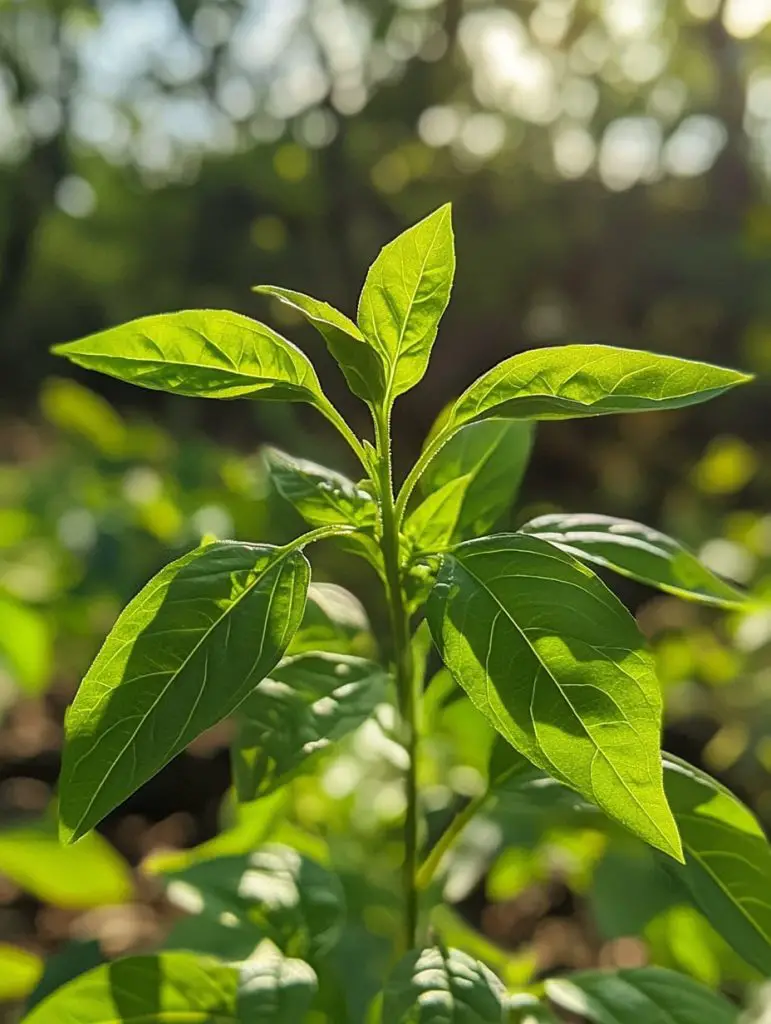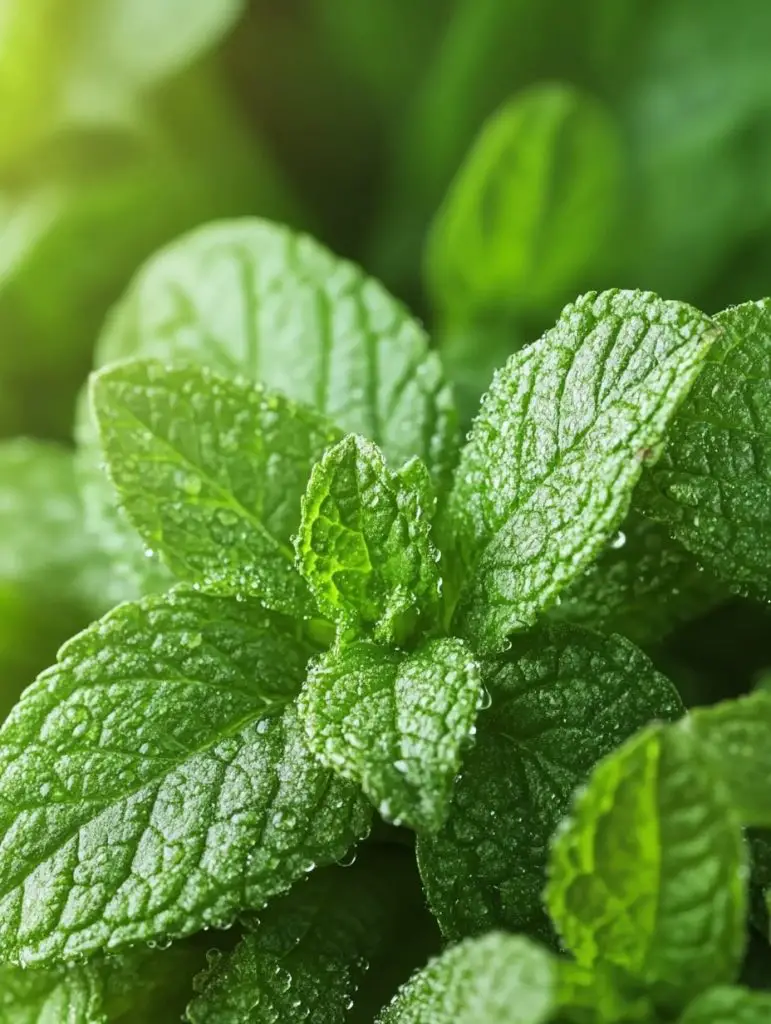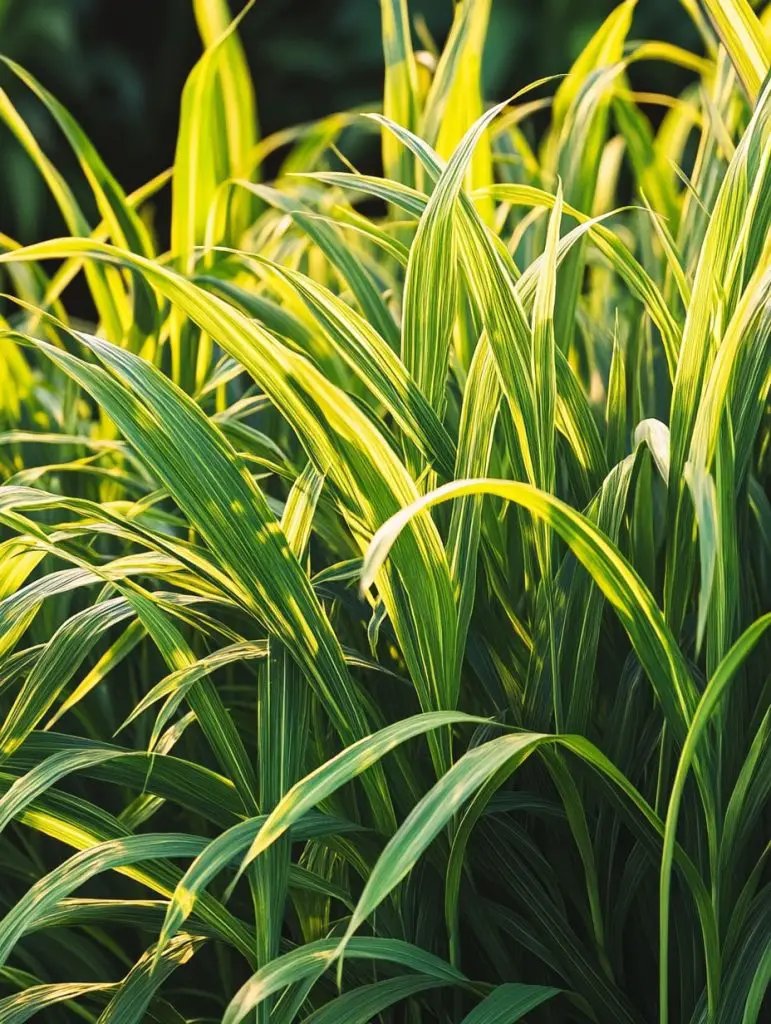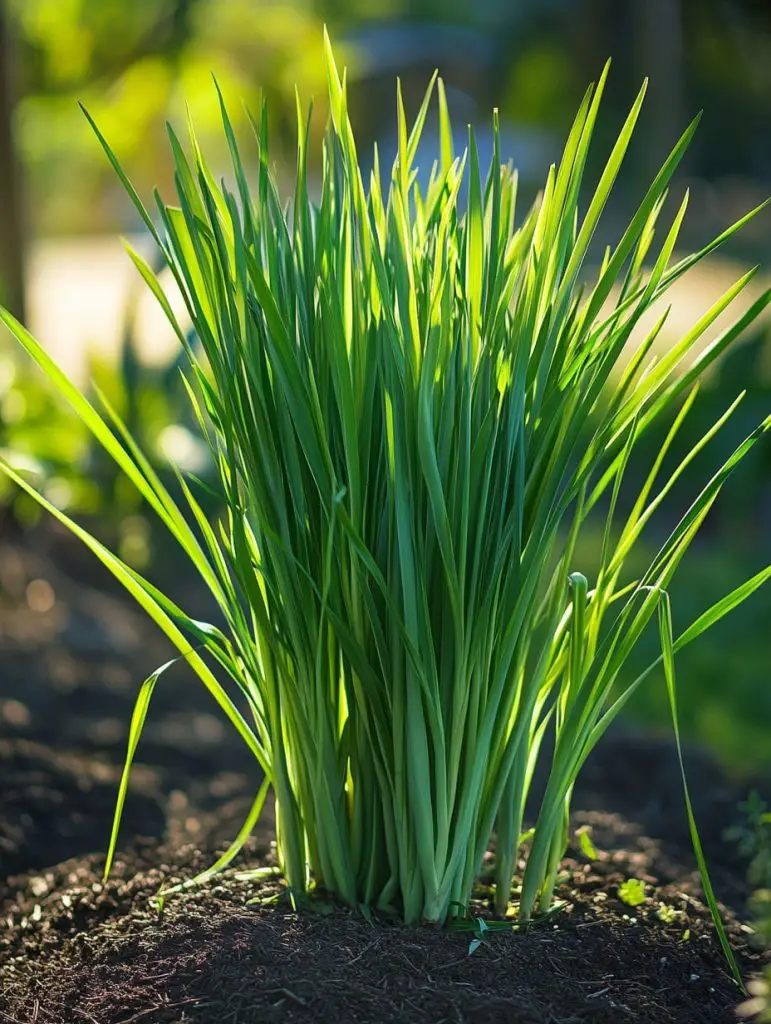Here’s a surprising fact: catmint, a common garden plant that keeps mosquitoes away, works ten times better than DEET. Scientists at Iowa State University found that this natural mosquito deterrent packs quite a punch.

Mosquitoes create serious problems by spreading diseases like malaria, dengue, and Zika virus. These stubborn pests can lay hundreds of eggs in just a spoonful of standing water. Nature offers powerful ways to fight back against these unwanted visitors. The classic citronella grass and aromatic herbs like basil, sage, and lemon balm have proven their worth as natural mosquito deterrents.
The Felix Neck Wildlife Sanctuary’s team saw much fewer mosquitoes after adding these natural repellents to their garden. Let’s explore the best plants that mosquitoes hate. You’ll learn how to make your outdoor space more enjoyable while keeping these pesky insects away naturally.
Herbs That Repel Mosquitoes

Herbs do double duty in our gardens! They spice up our cooking and keep those pesky mosquitoes away. You can easily grow them in containers or garden beds, which makes them perfect additions to any outdoor space.
Basil: A Culinary Herb Mosquitoes Hate

Basil stands guard as your natural mosquito defender. Every variety keeps these pests at bay, but lemon, cinnamon, and Peruvian basil pack an extra punch with their strong aromas. Mosquitoes can’t stand basil’s unique scent – the stronger your plant smells, the better it protects you.
This herb loves moist, well-drained soil and plenty of sunlight. Put your basil pots near sitting areas or mix up a natural repellent spray. Here’s a simple recipe: Pour boiling water over 1 cup of fresh basil leaves, let it sit for several hours, strain it, and spray it on your skin.
Rosemary: Woody Scent that Deters Insects
Rosemary packs powerful compounds like cineole, camphor, and limonene that send mosquitoes packing. Research backs this up impressively – a 20% rosemary oil solution kept mosquitoes away completely for 8 hours. Scientists also found that rosemary created a mosquito-free zone for 90 minutes straight.
This woody perennial thrives in USDA zones 8-10 but works just fine as an annual in cooler areas. Rosemary needs full sun and soil that drains well. You can use it several ways:
- Toss it in your fire pit to create a mosquito-free zone
- Mix rosemary essential oil with a carrier oil for your skin
- Combine rosemary oil and water for an easy spray
Mint: Strong Aroma that Repels Flies and Mosquitoes

Humans might love mint’s sweet smell, but mosquitoes run the other way. Menthol, mint’s active ingredient, naturally fights off mosquitoes and other bugs. Spearmint, peppermint, and chocolate mint all work great as deterrents.
This spreading perennial grows up to 36 inches tall and sports tiny pink, white, or purple blooms. Need quick protection? Just grab a few leaves and rub them on your skin. Mint grows like crazy almost anywhere, but it likes to take over, so pots might be your best bet.
Lemon Balm: Fast-Growing and Effective
Lemon balm (Melissa officinalis) comes from mint’s family and gives off a bright, lemony scent that mosquitoes hate. Northern European varieties pack lots of citronellal, which works just like the mosquito-fighting citronella oil.
Scientists proved lemon balm’s mosquito-fighting power in a 2013 study published in the Journal of Agricultural Science and Technology. Stronger concentrations worked even better at keeping mosquitoes away. This tough plant handles drought well and adapts to different light conditions, making it a great addition to your mosquito-fighting garden.
Flowers That Keep Mosquitoes Away
Flowers do more than just beautify your garden—they act as natural mosquito defenders. These blooming plants create a stunning barrier against buzzing pests without chemical sprays. Let me show you some colorful flowers that make your garden look amazing and keep mosquitoes away naturally.
Marigold: Bright Blooms with a Strong Scent

These cheerful annual flowers give off a distinctive musky smell that mosquitoes hate. You’ll find pyrethrum in marigolds, a compound that many commercial insect repellents use, which makes them more than just pretty faces in your garden. These natural barriers work best within a few feet of your patio or entrance.
Marigolds keep away aphids, thrips, whiteflies, Mexican bean beetles, squash bugs, and all but one of these tomato hornworms. You’ll get the best results by placing potted marigolds around seating areas or using them as borders in vegetable gardens. The bright colors and pest-fighting powers make them perfect companions to tomatoes, squash, and melons.
Lavender: Fragrant and Calming, but not for Bugs
Mosquitoes can’t stand lavender’s soothing scent that comes from linalool. Research shows lavender essential oil keeps away 80% of mosquitoes for up to eight hours. The numbers get even better indoors—linalool’s repellent rate hits 93% inside and 58% outside.
This Mediterranean native runs on sunshine and well-draining soil. You can crush lavender flowers and put the oils on bite-prone spots like your ankles and arms. Another option is to mix lavender essential oil with a carrier oil (1-2 drops per ounce) to make a natural repellent.
Bee Balm: Attracts Pollinators, Repels Pests

Bee balm, also called Monarda, horsemint, or wild bergamot, creates an amazing balance in your garden. It welcomes helpful pollinators while keeping mosquitoes at bay. The plant’s strong, incense-like smell throws off mosquitoes by hiding human scents.
Summer brings bee balm’s colorful show in red, pink, lavender, white, or purple. Crushing the leaves releases fragrant oils that boost its mosquito-fighting power. This tough perennial adds vibrant colors to your garden and deer won’t touch it.
Scented Geranium: Lemon-Scented and Effective
Citrus-scented geraniums pack the same punch as citronella grass against mosquitoes. The lemon-scented types work best because they contain citronella oil. A customer shared, “No matter which way the breeze was flowing, the bugs just stayed away”.
These plants work great near gates or paths where you brush against the leaves and release their oils. You might also try growing them in patio containers to get both beauty and pest control. These hardy plants need little care and handle dry spells well—just don’t over-fertilize them or you’ll lose that bug-fighting fragrance.
Grasses and Bulbs That Deter Mosquitoes
Tall grasses, ornamental bulbs, flowers and herbs work together to create a diverse, mosquito-free landscape. These plants enhance your garden’s beauty and pack natural compounds that keep biting insects away.
Citronella Grass: The Classic Mosquito Plant

True citronella grass (Cymbopogon nardus or Cymbopogon winterianus) stands as nature’s most trusted mosquito repellent. Many retailers market “citronella plants,” but genuine citronella is a tropical grass, not a scented geranium.
The Brooklyn Botanic Garden endorses citronella grass as a mosquito deterrent and notes that the living plant is more effective than oils or candles. This hardy perennial grows best in USDA zones 10-12 but can’t survive temperatures below 32°F.
Gardeners in cooler regions should plant citronella in large containers to move indoors during winter. The plant works best in sunny spots where you brush against its leaves, which releases its protective oils.
Allium: Decorative and Functional
Allium bulbs, close relatives of garlic and onions, emit a sulfur-onion scent that mosquitoes hate but humans barely notice. Their colorful, globe-shaped flower heads bring playful charm to gardens while keeping pests away.
These tough plants flourish in USDA zones 3-9, making them perfect for most gardens. Plant different allium varieties that bloom one after another from late spring through early summer to maintain constant mosquito protection.
Alliums make great companions for roses and vegetable gardens by keeping various pests at bay. Bulb planting yields better results than seeds since seed-grown alliums need up to four years to produce flowers.
Lemongrass: Easy to Grow in Warm Climates

Lemongrass (Cymbopogon citratus) shares citronella’s mosquito-fighting compounds—mainly geranial and neral, which together form citral. Studies show it keeps mosquitoes away by masking their target scents: carbon dioxide and lactic acid.
This tropical grass showcases elegant, pale blue-green leaves with bright citrus fragrance. The plant loves temperatures between 69-100°F and high humidity. Cool-climate gardeners should use containers they can bring inside during winter.
You can crush or press lemongrass blades onto clothes or skin for quick protection. The plant also guards gardens against whiteflies and other pests that struggle with its strong lemony scent.
Other Unique Mosquito-Repelling Plants
Plants can be powerful allies in fighting mosquitoes. Nature has given us some amazing natural repellents that protect us through different methods, thanks to their special chemical compounds.
Catnip: More Effective than DEET
Catnip might drive cats wild, but it’s also an amazing mosquito repellent. Scientists at Iowa State University found that nepetalactone, catnip’s essential oil, works ten times better at keeping mosquitoes away than DEET – the main ingredient in most store-bought repellents. Lab tests backed this up clearly. Areas treated with nepetalactone kept 75-80% of mosquitoes away, while DEET only managed to repel 55-60%.
The sort of thing I love about catnip is how it works. It triggers the TRPA1 irritant receptor, an ancient pain receptor mosquitoes share with many insects. Recent research shows even a tiny 2% concentration of catnip keeps mosquitoes away for an hour. Mix it with hand lotion and you’ll stay protected for four hours.
Catnip grows easily almost anywhere and costs much less than chemical repellents. You can crush the leaves and rub them on your skin or clothes right away.
Sage: Burn it to Release Repelling Oils
Sage’s aromatic oils are a great way to keep mosquitoes away. While we need more research on sage as a mosquito repellent, studies of cherry sage essential oil look promising – it works about 60% of the time against insects.
Here’s how to use sage most effectively:
- Create a protective barrier by burning sage bundles outdoors or using smudge sticks
- Rub crushed fresh leaves on your skin or clothes
- Mix five drops of sage essential oil with a quarter cup of carrier oil and apply it to exposed skin
This kitchen herb works best when you release its oils. Burning sage creates a mosquito-repelling smoke screen that really does the job.
Garlic: Strong Smell that Bugs Avoid
Garlic’s strong smell might season our food perfectly, but mosquitoes can’t stand it. When you crush or chop garlic, it creates allicin – a compound that drives insects away. It doesn’t just hide human scent – it messes with mosquitoes’ smell receptors so they can’t find us.
Field tests with soldiers showed amazing results. One garlic treatment kept working for two weeks and repelled insects for up to a month. The best part? Humans stop noticing the smell quickly, but mosquitoes keep avoiding it.
You can plant garlic throughout your garden to protect your outdoor space. Another option is to blend garlic cloves with water to make a spray, or use diluted garlic oil on your skin and clothes.
Conclusion
You don’t need harsh chemicals or expensive solutions to control mosquitoes naturally. Our research found that there was strong protection against these persistent pests in many common garden plants. Catnip leads the pack as nature’s champion and works ten times better than DEET according to scientific studies.
Your mosquito-free sanctuary can include several practical options. Basil and rosemary serve double duty as kitchen herbs and natural repellents. The garden looks beautiful with marigolds and lavender that also keep bugs away. Citronella grass and lemongrass create natural barriers around outdoor spaces.
The best way to start is with 2-3 plants from different groups – maybe even a herb, a flowering plant, and a grass. These plants work best near seating areas or entry points where mosquitoes usually gather. The plants’ protective properties become stronger when their oils are released by gently brushing or crushing the leaves.
These natural defenders protect outdoor spaces and help local ecosystems by attracting helpful insects like bees and butterflies. With these plant allies, garden and patio time becomes more enjoyable without unwanted buzzing visitors.
FAQs
Q1. What is the most effective plant for repelling mosquitoes?
Catnip has been found to be about ten times more effective at repelling mosquitoes than DEET, the active ingredient in most commercial repellents. Its essential oil, nepetalactone, activates an ancient pain receptor in insects, providing significant protection.
Q2. How can I use herbs to keep mosquitoes away?
Many herbs like basil, rosemary, and mint are effective mosquito repellents. You can plant them in your garden, place potted herbs near seating areas, or make homemade repellent sprays by steeping the herbs in water. Some herbs, like rosemary, can also be burned to release mosquito-repelling oils.
Q3. Are there any flowering plants that repel mosquitoes?
Yes, several flowering plants repel mosquitoes. Marigolds contain pyrethrum, a compound used in many insect repellents. Lavender’s scent comes from linalool, which mosquitoes detest. Bee balm and scented geraniums are also effective at keeping mosquitoes away while adding beauty to your garden.
Q4. Can citronella plants really keep mosquitoes away?
True citronella grass (Cymbopogon nardus or Cymbopogon winterianus) is indeed effective at repelling mosquitoes. The living plant is more effective than processed oils or candles. It’s a tropical grass that thrives in warm climates but can be grown in containers and moved indoors during winter in cooler regions.
Q5. How can I create a mosquito-repelling barrier around my outdoor space?
To create a mosquito-repelling barrier, plant a variety of mosquito-deterring plants around your outdoor area. Use a combination of herbs (like basil and rosemary), flowers (such as marigolds and lavender), and grasses (like citronella and lemongrass). Place these plants near seating areas, entryways, and other spots where you spend time outdoors for maximum effectiveness.
